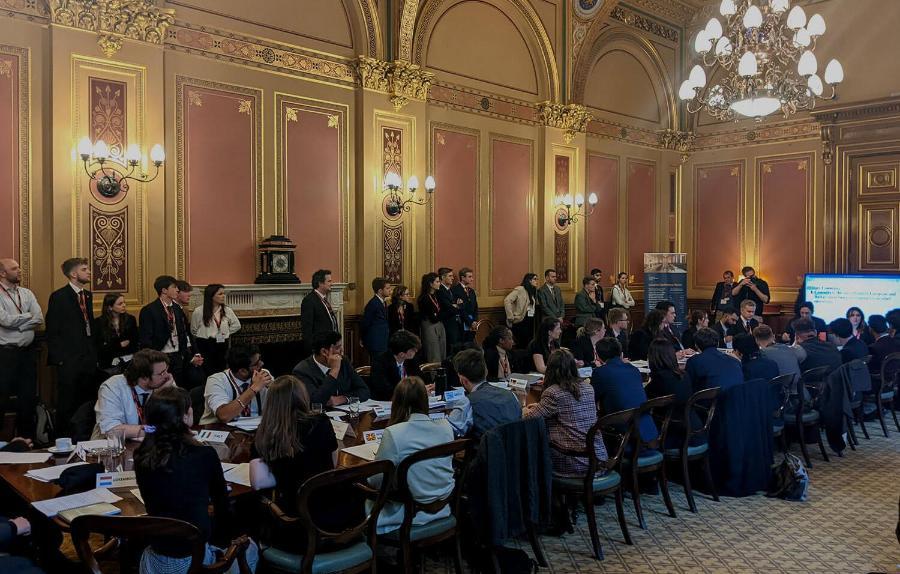Bath Spa students become international diplomats for the day
Bath Spa University students had the opportunity to experience working as an international diplomat for the day, joining students from 32 UK universities to participate in a crisis scenario event.
It was the first time that Bath Spa University took part in the prestigious annual event, which was held at the Foreign, Commonwealth and Development Office in Westminster and organised by the British International Studies Association.
Read the full story